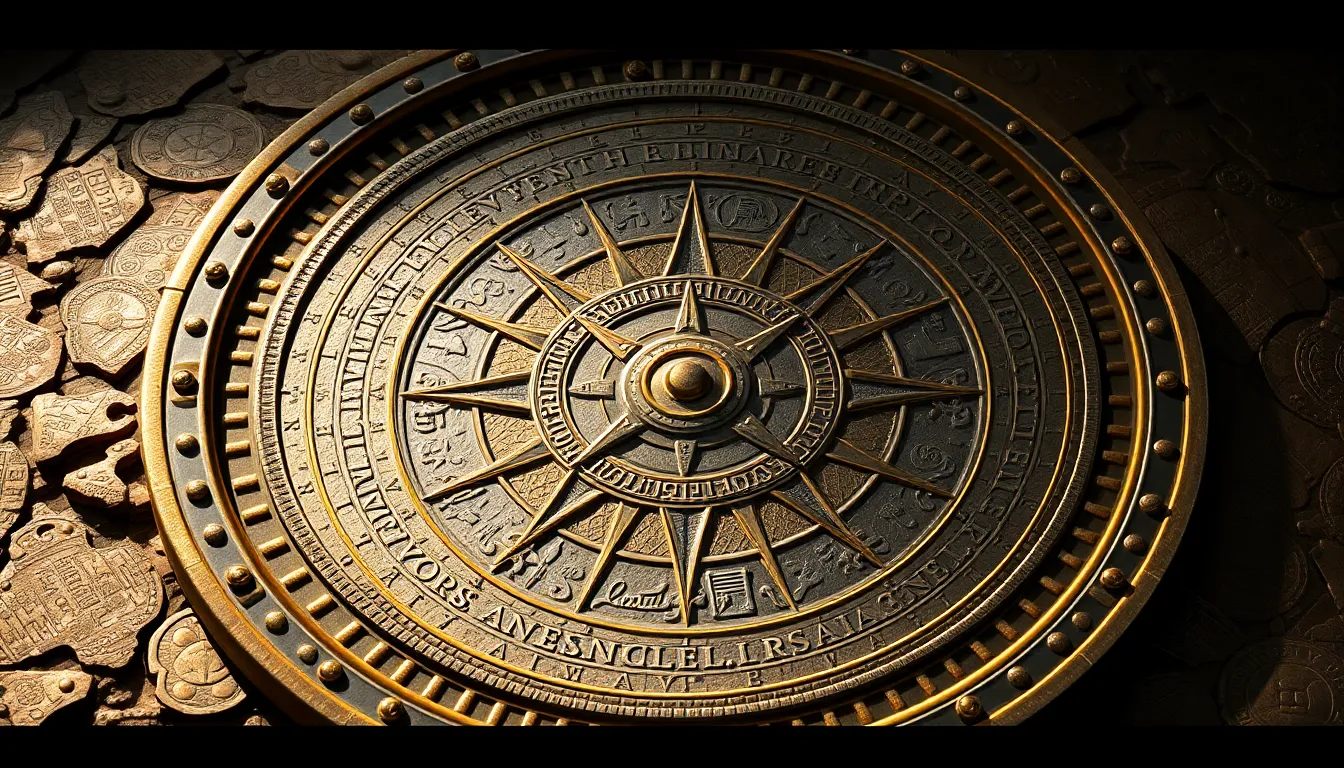The Legend of the Divine Compass: Guidance in the Afterlife
I. Introduction to the Legend of the Divine Compass
The Legend of the Divine Compass is a captivating tale rooted in ancient mythologies, symbolizing the journey of souls through the afterlife. It illustrates the significance of guidance and direction as one navigates the unknown realms beyond mortal existence. The compass, as a universal symbol, has been revered across various cultures for its ability to provide orientation, making it an integral part of this legend.
This article aims to explore the historical context, symbolism, key characters, and the lessons imparted by the Divine Compass legend, shedding light on its relevance in both ancient and modern contexts.
II. Historical Context of the Divine Compass
The origins of the Divine Compass legend can be traced back to several ancient civilizations, where the concept of an afterlife and the need for guidance were pivotal. In Egyptian mythology, for instance, the journey through the Duat (the underworld) required the deceased to navigate various challenges, often aided by divine symbols.
Throughout history, different cultures have interpreted the compass in unique ways:
- Ancient Egyptians: The compass was often associated with the god Thoth, the deity of wisdom and writing, who helped guide souls through the afterlife.
- Greeks and Romans: The concept of the compass evolved into metaphors of fate and destiny, where various gods would guide souls to their final resting places.
- Indigenous Cultures: Many indigenous peoples viewed the compass as a spiritual tool, representing nature’s guidance and the importance of following one’s path.
The compass has thus woven itself into the fabric of mythology and folklore, representing a bridge between the living and the dead.
III. The Symbolism of the Divine Compass
The Divine Compass is rich in symbolism, embodying various themes that resonate deeply with human experiences:
- Guidance and Direction: The compass serves as a metaphor for finding one’s way through the complexities of life and the afterlife.
- Spiritual Journeys: It symbolizes the path that souls take after death, emphasizing the need for direction in unfamiliar territories.
- Moral Choices: The compass reflects the decisions individuals make, illustrating the importance of ethical navigation in life.
IV. Key Characters in the Legend
The legend features several key characters who play vital roles in the journey of the lost souls:
- The Guardian of the Compass: A divine figure responsible for guiding souls and ensuring they find their way. Often depicted as a wise mentor, the Guardian embodies wisdom and compassion.
- Lost Souls: These are the spirits who wander aimlessly in the afterlife, seeking direction and purpose. Their struggles highlight the significance of guidance.
- Other Significant Figures: Various deities and mythical creatures may appear, each contributing to the narrative of guidance, challenges, and moral dilemmas.
V. The Journey of the Lost Souls
The afterlife realm, as depicted in the legend, is a complex and often daunting landscape. Souls travel through various domains, encountering challenges that test their resolve and character:
- Desolate Landscapes: Many souls find themselves in barren regions, reflecting their inner turmoil and confusion.
- Trials and Tribulations: Without the compass, souls may face obstacles that lead them astray, making their journey perilous.
- The Transformative Power: When guided by the Divine Compass, lost souls experience enlightenment, enabling them to confront their past and embrace their future.
VI. Lessons and Morals from the Legend
The Divine Compass legend imparts several important lessons that resonate across generations:
- Life Choices: It emphasizes the impact of choices made during one’s lifetime and how they shape the journey into the afterlife.
- Seeking Guidance: The narrative encourages individuals to seek help and direction during times of uncertainty, whether through spiritual practices or by relying on wisdom from others.
- Hope and Redemption: Ultimately, the story is one of hope, illustrating that even the lost can find their way back to the light.
VII. Modern Interpretations and Relevance
In contemporary literature and media, the Divine Compass continues to resonate. Its themes have been explored in various forms:
- Literature: Many modern novels and stories depict characters embarking on journeys of self-discovery, often featuring a symbolic compass.
- Films: Movies that explore spiritual themes often incorporate the idea of a guiding force, reflecting the quest for purpose.
- Spiritual Beliefs: The legend aligns with modern spiritual practices that emphasize guidance, intuition, and the search for one’s true path.
The ongoing search for direction and purpose remains a central theme in the lives of many, making the legend of the Divine Compass eternally relevant.
VIII. Conclusion: Embracing the Wisdom of the Divine Compass
In summary, the Legend of the Divine Compass offers profound insights into the human experience, emphasizing the importance of guidance in both life and the afterlife. Through its rich symbolism, historical context, and relatable characters, the legend inspires individuals to reflect on their personal journeys.
As we navigate our own lives, may we embrace the wisdom of the Divine Compass, seeking guidance and making choices that lead us toward our true purpose. In a world filled with uncertainty, let us remember the significance of direction and the transformative power of finding our way.




